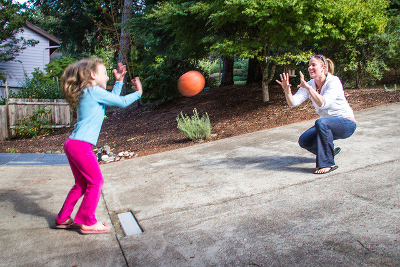Greater emphasis needs to be placed on developing the motor skills of children with autism if they are to see a boost in their language and socialization, according to two separate studies.
 The studies throw new light on expressive and receptive language problems, which are known to be an issue for many people diagnosed with autism. The findings suggest that one way of addressing these language issues is to tackle difficulties in body movements.
The studies throw new light on expressive and receptive language problems, which are known to be an issue for many people diagnosed with autism. The findings suggest that one way of addressing these language issues is to tackle difficulties in body movements.
A study published in the journal Frontiers in Integrative Neuroscience concludes that language skills in people with autism may be closely linked to their oral motor skills, such as their lip or jaw movements. This study involved the assessment of the motor skills and language ability of children with autism who were enrolled in a behavioural intervention programme in Bangalore, India.
The researchers found that having good motor skills in three areas – gross, fine and oral – was linked to having better receptive language.
The results indicate that training in oral motor skills may have a more important role in helping children learn to speak than previously thought. Such training is not always a focus for children with autism.
Meanwhile, a US study found that children with better motor skills were more adept at socializing and communicating.
“Motor skills are embedded in everything we do, and for too long they have been studied separately from social and communication skills in children with autism,” said the study’s lead author, Megan MacDonald, an assistant professor in the College of Public Health and Human Sciences at Oregon State University.
MacDonald is an expert on the movement skills of children with ASD and is pictured above practicing throwing a ball with a child (image courtesy of Oregon State University).
MacDonald said that in one study 12-year olds with autism were performing physically at the same level as a six-year-old.
She said: “They do have some motor skills and they kind of sneak through the system, but we have to wonder about the social implications of a 12-year-old who is running like a much younger child.”
Giving advice to parents and professionals, she said: “Motor skills and autism have been separated for too long. This gives us another avenue to consider for early intervention.” She advocates teaching motor skills at a young age.
In the MacDonald study, children who tested higher for motor skills were also better at ‘daily living skills’ such as talking, playing, walking and requesting things from their parents.
“We don’t quite understand how this link works, but we know it’s there,” Macdonald said. “We know that those children who can sit up, walk, play and run seem to also have better communication skills.”
Published: 20 September 2013















